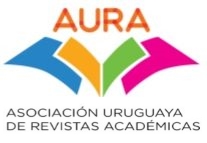Identification in Uruguay of Ascocotyle (Phagicola) longa DIGENEa: HETEROPHYIDAE parasitizing mullets, Mugil platanus PISCES: MUGILIDAE and risk assessment of zoonoses and diseases in pets
Keywords:
Mullet, Ascocotyle longa, Parasites, ZoonosisAbstract
The mullet (Mugil platanus) is a fish commercialized in Uruguay for human consumption and is being also studied for aquaculture. In previous works metacercariae ofthe family Heterophyidae were detected in a great number of fishes. The objetive of the present work is to identify the species of trematode and the occurrence of infection in mullet for Uruguay. The alevins and young fishes were captured in coast of the Rio de la Plata, whereas the adults were acquired in fish market. Internal organs (heart, spleen, liver and intestine) and muscle were examined, being observed the metacercariae in fresh with the microscope. The identification of the parasite was made for experimental infection of mice and later study of trematode adult. The parasite is Ascocotyle (Phagicola) longa Ransom, 1920. The percentage of infection of alevins was 10,27%, the one of young fishes was 100% and the one of adults was 94,73%. The authors wants alert that: a) this parasite affects dogs producing gastrointestinal helminthiasis; and, b) cases in human beings, that hay consumed crude fish, have been diagnosed in Brazil.











